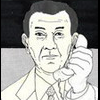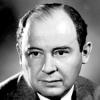you wont crack this! maybe in 2030
Coming from the guy called there is a way, change your name to there is no way, feel free to add till 2030 but thats not essential. NOWAYTILL2030 is my recommedation as a username but youd have to like it as well offcourse.
Allright, all it takes for finding answers to this thread is first identifying what is behing remember photographic data,
Doing a quick search led me to abstracts about
autobiographical memory, which ill make a thread about now as i dont think thats been discussed before.
First of all we need to identify the brainareas mainly involved in processing/seeing/remember a photo, then we need to figure out ways to improve activity of this brainarea by for example identifying the neurotransmitters that act on it, then wed need to modulate this brainarea with targetting that neurotransmitter targetting the brainarea with lasertherapy that guy with hes popular thread talks about is another method of enhancing this aspect of memory.
[Cognitive function related to temporal lobe epilepsy: advances in research on new cognitive function].
[Article in Japanese]
Author information
- 1Shizuoka Health Care Center, Central Japan Railway Company, Japan.
Abstract
The importance of neuropsychological examinations in epilepsy care and, especially, in epilepsy surgery is centered on the following roles: they offer a means to confirm the epileptic focus by multi-modal preoperative assessments and they help to assess postoperative functional changes based on preoperative cognitive functions. Furthermore, assessments of the cognitive functions of patients with epilepsy using various tests aid in providing comprehensive medical care. Thus far, research on cognitive functions related to temporal lobe epilepsy has focused on memory, language, and general intelligence. However, the concept of social cognitive function has been recently proposed in the field of neuropsychology. This cognitive function, proposed by Brothers in 1990, is a collective term for functions needed in social life; these include functions required to interpret the expressions, feelings, and intentions of others and to form and maintain smooth human relationships while making decisions necessary for self-survival. These functions mainly involve facial expression recognition and decision-making. Findings of research on neural mechanisms underlying social cognitive functions have emphasized the roles of the cerebral limbic system, such as the amygdalo-hippocampal complexes, and the emotional system in the ventromedial prefrontal area. Studies on social cognitive functions in mesial temporal lobe epilepsy are being pursued currently. Early-onset right mesial temporal lobe epilepsy with hippocampal sclerosis is the key substrate determining a severe deficit in recognizing emotional facial expressions and decision-making. In the future, neuropsychological examinations of social cognition, in addition to those of global intelligence, memory, and verbal function, will contribute to the provision of comprehensive medical care to patients with epilepsy.
Cognitive consequences of two-thirds anterior temporal lobectomy on verbal memory in 144 patients: a three-month follow-up study.
Abstract
Previous studies have shown that left temporal lobectomy for intractable epilepsy can lead to verbal memory deficits. However, patients with left temporal lobe epilepsy (LTLE) frequently have impaired verbal memory preoperatively. The present analysis of 144 patients who underwent temporal lobe resections for either left (n = 68) or right (n = 76) temporal lobe epilepsy (LTLE, RTLE) addressed the questions of (a) whether a left two-thirds anterior temporal lobectomy (ATL) increases deficits in these qualitative aspects of verbal memory already impaired preoperatively, and (b) whether other aspects of verbal memory are additionally affected. We also evaluated possible determinants of preoperative abilities and postoperative changes, using multiple regression analysis. Preoperatively, patients with LTLE differed from patients with RTLE only in poorer performance on measures of long-term consolidation/retrieval (delayed recall). This is related to hippocampal pathology and seizure severity. Only left temporal lobe resections resulted in significant deterioration in verbal learning and memory. Acquisition over learning trials and recognition deteriorated most markedly, whereas performance in long-term consolidation/retrieval showed only minor changes. Preoperative performance levels, chronological age, the extent of the en bloc resection, preoperative performance on figural memory, and preoperative seizure severity were valuable determinants of postoperative changes in acquisition and recognition. In contrast, changes in consolidation/retrieval related only to preoperative ability. Left two-thirds ATL leads to new impairment in addition to preexisting memory deficits. The finding that left temporal lobectomy affects verbal acquisition and recognition more than long-term consolidation/retrieval, including the different determinants of these changes, most likely reflects the differential effects of surgery on mesial temporal and neocortical temporal functions.
Seems i have to show here how a simple pubmed search can learn us how differened aspects of memory are modulated by differened brainareas, theres not much research in this thread besides speculation and one of the its not possible guys, had many of them talking to me when i first researched tolerance prevention to most drugs.
Got a fucking headache looking at my screen


























































